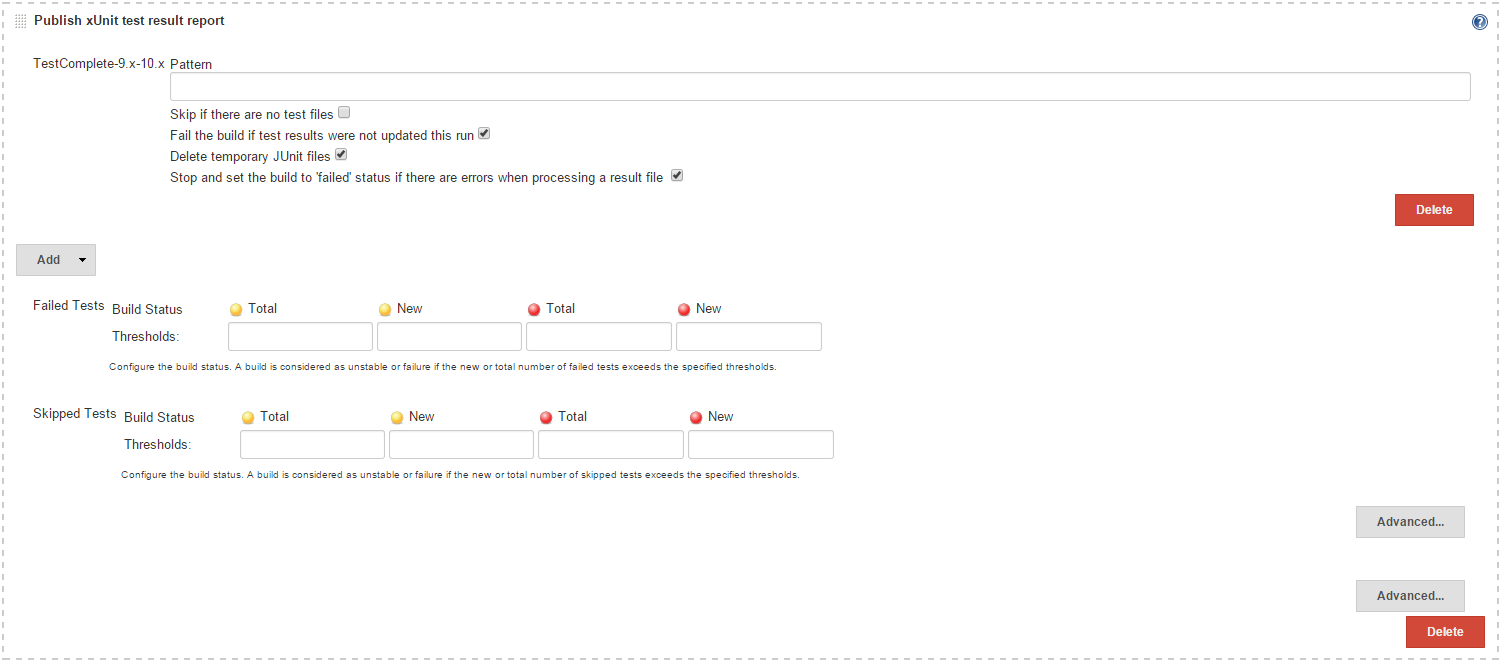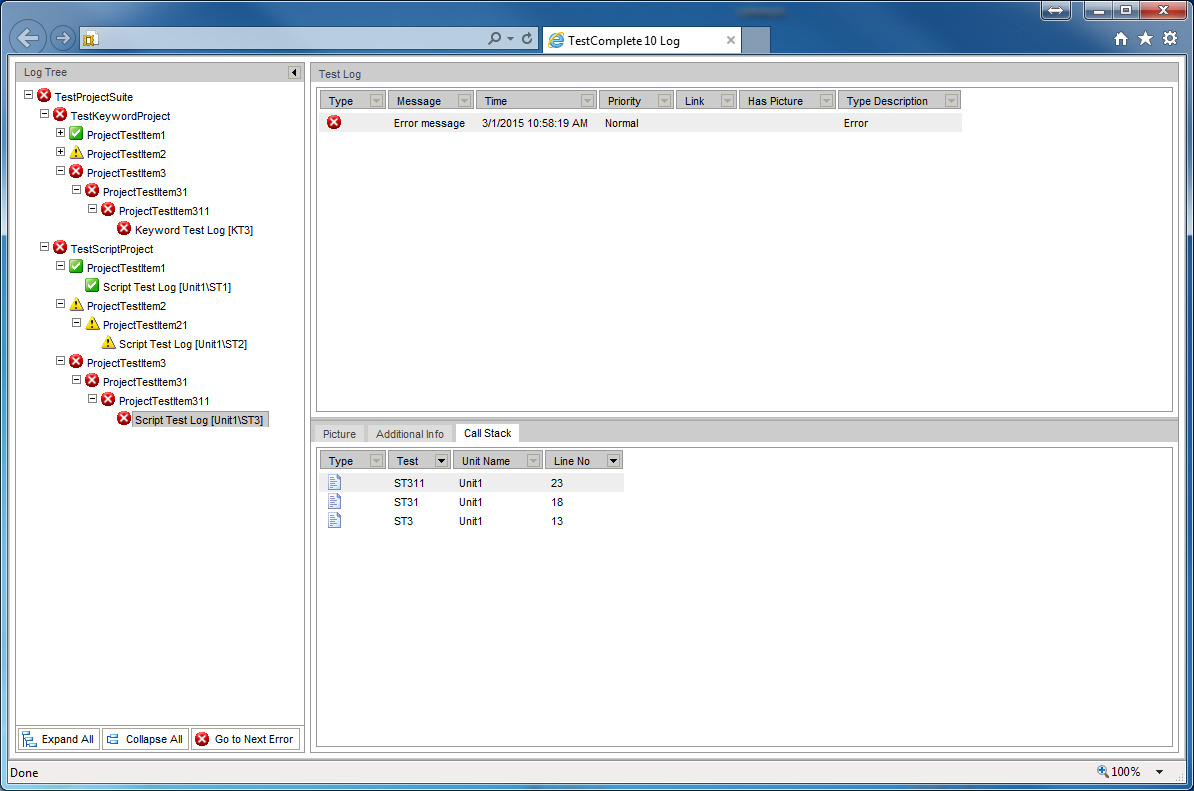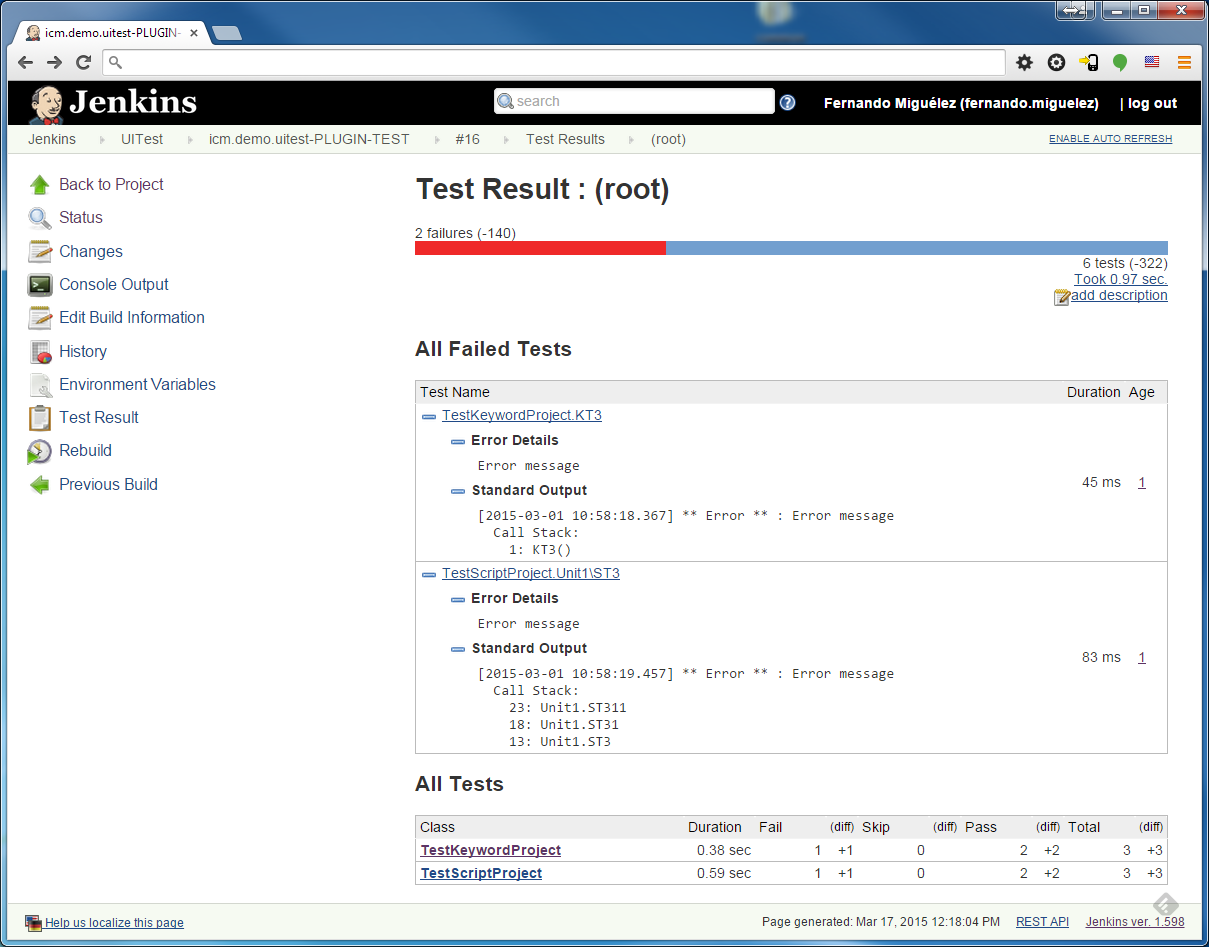Jenkins Plugin that transforms TestComplete MHT test reports into xUnit format so they can be integrated with Jenkins' JUnit features.
How it works
It has been developed as a xUnit Plugin extension. To use it select the build step "Process xUnit test result report" or "Publish xUnit test result report" post-build action. In either case click on "Add" button and select "TestComplete-9.x-10.x" from drop down list.
 {width="60%"
height="60%"}
{width="60%"
height="60%"}
In the "TestComplete-9x-10.x Pattern" text box introduce the location of the MHT report files as generated by TestComplete/TestExecute.
Some considerations:
- Tests in TestComplete can be organized in a tree of test items. JUnit reports (xUnit) however can only be organized in two levels (testsuites and testcases contained within). TestComplete's keyword and script tests are then mapped to test cases and test suite is mapped as top-level test item containing keyword or script tests at any level.
- For each resulting test case the classname is obtained as the name of the second-level ancestor test item (if any) containing the original keyworkd or script test.
To illustrate these considerations consider following example TestComplete report that belongs to a test suite that contains two top TestComplete projects.
 {width="60%"
height="60%"}
{width="60%"
height="60%"}
This is the resulting xUnit report. The xUnit test suite name matches TestComplete's TestSuite name ("TestProjectSuite"). Test cases are named after keyword tests (e.g. "KT3") and script tests (e.g. "Unit\ST3"). The class names correspond to the names of the TestComplete projects in suite (second level test items in report).
 {width="60%"
height="60%"}
{width="60%"
height="60%"}
This plugin has been successfully tested on Linux, Windows and MacOSX.
Change Log
Version 1.1 (25 Mar, 2015)
- NEW. Added TestComplete 9.x support. Thanks to Krystian Przybyła for providing feedback and reports in TC9 format. Main improvement of TC10 over TC9 is millisecond resolution support for timing information (timestamps and durations).
- BUG. Single test reports generated xUnit output format were not renderable by Jenkins
Version 1.0 (17 Mar, 2015)
- First version.